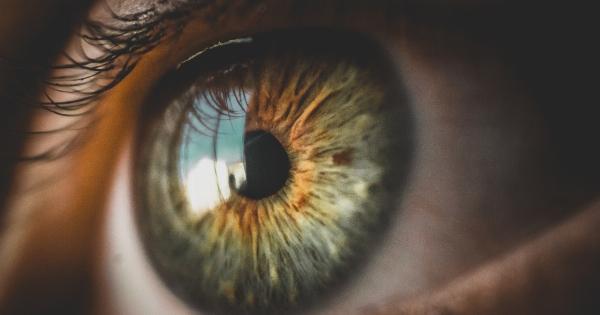Coffee, a beloved beverage consumed by millions of people worldwide, has long been associated with numerous health benefits, from boosting energy levels to improving cognitive function.
However, recent research has revealed a surprising link between coffee consumption and improved eye health.
The Role of Antioxidants in Eye Health
Before diving into the specifics of how coffee affects eye health, it’s important to understand the role of antioxidants in maintaining optimal vision.
Antioxidants are compounds that protect cells from damage caused by harmful molecules known as free radicals. They help neutralize these free radicals, preventing them from causing oxidative stress and potential harm to various parts of the body, including the eyes.
In particular, certain antioxidants such as lutein, zeaxanthin, and vitamin C have been shown to have considerable benefits for eye health. These antioxidants are found naturally in various fruits, vegetables, and other plant-based foods.
However, recent studies suggest that coffee could also be a significant source of these beneficial compounds.
Coffee and Macular Degeneration
Macular degeneration, also known as age-related macular degeneration (AMD), is one of the leading causes of vision loss in older individuals.
It primarily affects the macula, a small but crucial part of the retina responsible for central vision and color perception.
Fortunately, coffee consumption has been linked to a reduced risk of developing AMD.
A study published in the Journal of the American Medical Association (JAMA) found that individuals who consumed three or more cups of coffee per day had a significantly lower risk of developing AMD compared to those who abstained from coffee or consumed it in smaller quantities.
Coffee and Cataracts
Cataracts, a clouding of the eye’s lens, are another common age-related condition that can impair vision. While cataract surgery is effective in treating advanced cases, prevention is always preferable.
Surprisingly, coffee has been associated with a lower risk of developing cataracts.
A study conducted by researchers at the Harvard T.H. Chan School of Public Health found that individuals who drank caffeine-containing beverages, such as coffee, had a 15% lower risk of developing cataracts compared to non-consumers.
The protective effect was more pronounced in individuals over the age of 65.
Coffee and Glaucoma
Glaucoma is a group of eye conditions characterized by damage to the optic nerve, often due to increased pressure within the eye. If left untreated, glaucoma can lead to irreversible vision loss.
While coffee consumption alone cannot treat glaucoma, it may help lower the risk of developing the condition.
A study published in the journal Ophthalmology investigated the relationship between caffeine intake and glaucoma risk.
The results showed that individuals who consumed moderate amounts of caffeine, equivalent to two to three cups of coffee per day, had a 25% lower risk of developing primary open-angle glaucoma, the most common form of glaucoma.
The Impact of Caffeine on Eye Health
While the exact mechanism by which coffee improves eye health is still not fully understood, researchers believe that caffeine, a key component of coffee, plays a significant role.
Caffeine acts as a vasoconstrictor, meaning it narrows blood vessels and reduces blood flow to certain areas of the body.
In terms of eye health, this vasoconstrictive effect may help reduce intraocular pressure, a major risk factor for glaucoma.
By limiting the amount of fluid in the eye, caffeine can potentially help maintain healthy eye pressure levels, thus reducing the risk of glaucoma development.
Other Benefits of Coffee for Eye Health
Besides its potential role in preventing specific eye conditions, coffee consumption has been associated with various other benefits for overall eye health:.
1. Reduced Dry Eyes
Dry eyes are a common issue characterized by insufficient lubrication on the surface of the eyes.
Drinking coffee has been linked to a decreased risk of dry eyes, likely due to caffeine’s ability to increase tear production and improve tear film stability, thus reducing discomfort related to dry eyes.
2. Protection Against Retinal Damage
Retinal damage, often caused by diabetes or high blood pressure, can lead to vision loss or blindness.
The antioxidants found in coffee, along with caffeine’s anti-inflammatory properties, may help protect against retinal damage and promote overall retinal health.
3. Cognitive Benefits for Vision Processing
Research suggests that coffee consumption may have cognitive benefits related to vision processing.
The caffeine in coffee has been shown to enhance various aspects of cognitive function, including attention, reaction time, and memory, all of which are important for efficient vision processing.
4. Potential Anti-Cancer Effects
Although further research is needed, preliminary studies have indicated a potential link between coffee consumption and a reduced risk of certain types of eye cancer, such as uveal melanoma.
Coffee’s high antioxidant content may contribute to this protective effect.
Enjoying Coffee Responsibly
While coffee may offer several benefits for eye health, it’s important to enjoy it in moderation. Excessive caffeine intake can lead to various health issues, including sleep disturbances, increased heart rate, and anxiety.
Additionally, coffee should not replace a healthy and balanced diet rich in fruits, vegetables, and other nutrient-dense foods.
Individuals with preexisting eye conditions should consult with their healthcare provider or ophthalmologist to determine the most appropriate course of action for their specific needs.
In conclusion
Contrary to popular belief that coffee is harmful to eye health, research has shown that moderate coffee consumption can actually have a positive impact on eye health.
The antioxidants and caffeine found in coffee contribute to protecting against eye conditions such as macular degeneration, cataracts, and glaucoma. Additionally, coffee consumption may reduce the risk of dry eyes, retinal damage, and provide cognitive benefits for vision processing.
As with any food or beverage, it is important to consume coffee responsibly and maintain a balanced diet to optimize eye health.





























